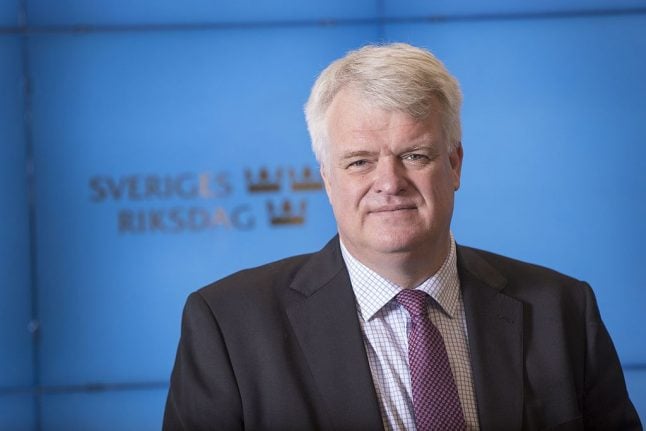Tell me a bit about the party's founding. How did the party come into being?
The party was founded in the 1910s, just before the First World War, after the Social Democrats and the conservatives had formed their parties.
The liberal parties were mainly in the cities, but more than half the population of Sweden lived in the countryside. So, social liberally-oriented people on the countryside decided to form a farmers’ union, called the Farmers' League, a political party which entered the Swedish parliament just before 1920.
The party’s priority was justice for everyone in the country, with equal access to education and taxes and so on, and the right to own your own land and your own small companies on the countryside – justice and freedom for all people all around Sweden.
After the Second World War, it became a larger party all over the country, in cities as well, not just on the countryside. And in 1958 it changed its name to the Centre Party, just as similar parties were doing the same in Finland and Norway.
At that time the party started to work a lot with environmental questions. We were the first party in parliament to start working on environmental issues, in the 1960s. And of course we still had our focus on conditions for small companies as well.
After 1990 we have grown and now we have entered into the Alliance of Liberals and Democrats for Europe, in European parliament.
What differentiates the center party from other parties?
We emphasize how new jobs are created, that they are created mainly among small companies. Four of five new jobs are created in small companies. We need lower taxes and better conditions for starting small companies all over Sweden to support this.
We also stress that you should have good living conditions all over Sweden, both in the countryside and in cities. The population in Sweden’s countryside is not high density, so it takes a lot of effort to get good roads, services, and housing there, outside the cities.
And we also highlight the combination of economic growth and good green politics. There is a difference between us and the so-called Green Party, who we think are opposed to economic growth.
Describe a typical Centre Party voter.
Most of our voters live outside of the cities. We have also strong support by people who have higher education, from universities. We also have strong support among women and among people with their own businesses.
In 2005 the party became 'one of Europe's richest' by selling its newspaper business. How did the party end up having a newspaper business in the first place, and why did you decide to sell?
We had a lot of different good local businessmen who had started newspapers throughout our history. We have a history of having a good combination and collaboration with both politics and small business. And one of our small businesses was newspapers.
The local newspapers we owned worked very well, and we merged them into one national company with seven of the newspapers. Things were going very well.
Then we saw that the media market ahead is very complicated. We don’t know if we have the competence to orient in that complicated future market, so it is better to sell now while ratings are good and we have good economy.
What is your role in the party? What does a party secretary do?
I run the organization. Our party leader is head of politics and our spokesperson to the public and the media, while I serve the party board and the leadership with the facts I need to make good decisions, and run the organization with 70 employees to make sure everything the leadership decides is done.
The Centre Party has been close to dropping below the 4% threshold in recent elections, but been growing in popularity in the last year or so. Why are things looking up now?
I think it’s partly because we have stressed a couple of questions that people think are important. For example, a humane policy on migration, with order and good economy in Sweden, and that we have a policy for better integration for the people who have moved to Sweden. And also, the issue that we have always focused on, to have good development in all of Sweden, not just in the cities, has become more important during the last few years than it was earlier.
Why is that?
I think a lot more people have simply started to focus on that question, in the media as well.
We also have also the most popular party leader in Sweden, Annie Lööf. People thin k she is very clear and reliable.
What are your main priorities ahead of the 2018 election?
We want to have a new government in Sweden, a new Alliance government with the four parties that ruled between 2006 and 2014. We want to put the spotlight back on creating jobs, focusing on small companies to create those jobs. And more focus on the combination of green politics and growth.
There is a lot of debate about cooperating with the Sweden Democrats — where does the Centre Party stand?
We don’t want to cooperate with them. They have their roots in racism and they don’t accept that all people have equal rights.
The audience reading this consists of international students here in Sweden on scholarships from the Swedish Institute. If they should remember one thing about the Centre Party when they return home, what should it be?
The Centre Party in a nutshell is a green, liberal party with an optimistic view on the future and a strong belief in everyone’s equal rights.


 Please whitelist us to continue reading.
Please whitelist us to continue reading.